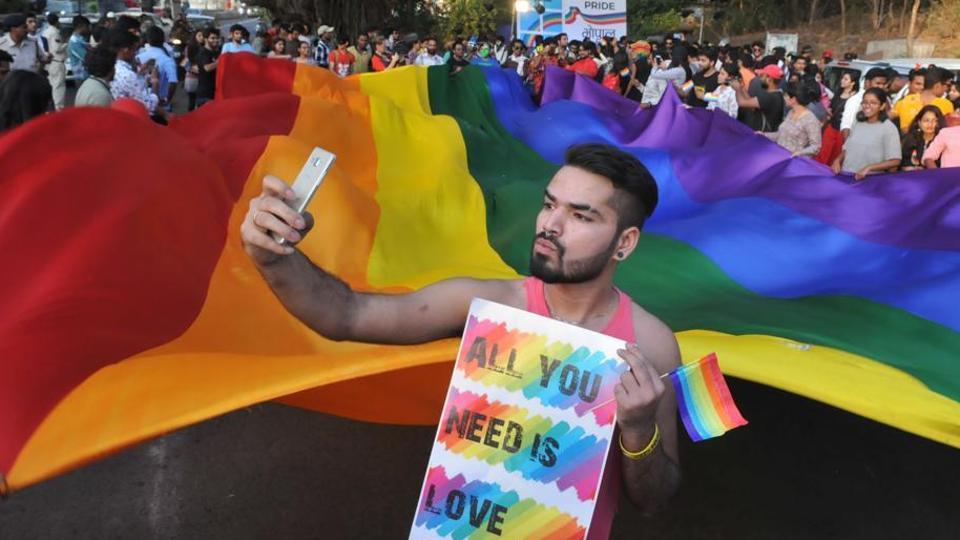We’re down to 74 countries where homosexuality is illegal
Colin Stewart is a 45-year journalism veteran. He is the…

April 16, 2018:
The total number of countries with anti-LGBT laws just dropped to 74, thanks to Trinidad’s High Court decision overturning the nation’s sodomy law (pending an appeal). LGBT rights activists hope that an upcoming court rulings in India and Kenya will drop the count to 73 or even 72.
Overall, a strong trend is slowly moving the world away from homophobic repression.
The list published last year by the International Lesbian, Gay, Bisexual, Trans and Intersex Association (ILGA ) was down 22 percent from ILGA’s list of 92 countries in 2006, when the global rights group began documenting the laws that are used to persecute LGBT people.
Support this blog’s fight against anti-LGBT violence.
[paypal-donation]
More recently, a further step away from repression was the defeat of the terrorist regime known as the Islamic State, ISIS and ISIL, which operated in Syria and Iraq as a harshly anti-LGBT government. This blog listed it as a de facto country. Now, with only few remnants of ISIS still resisting military defeat, ISIS has been removed from the blog’s list.

The Indian Supreme Court is scheduled to rule soon on the country’s colonial-era law against sex “against the order of nature.” The court is expected to overturn that law, since three Supreme Court judges have stated that no one should have to live in fear because of their sexuality.
A High Court in Kenya is scheduled to rule soon on a similar constitutional challenge to Kenya’s colonial-era law against gay sex.
Other countries that recently made progress have included:
- Belize , where the Supreme Count in August 2016 overturned that nation’s anti-sodomy law as applied to consensual sex.
- Seychelles and Nauru, which both repealed their anti-gay laws in May 2016.
- Mozambique, on the southeastern coast of Africa, with a population of 24 million. It adopted a new Penal Code in the second half of 2014 and was dropped from this list in early 2015.
- The tiny nations of Palau in the western Pacific Ocean and São Tomé and Príncipe, in the Atlantic Ocean off the shores of central Africa. Both recently decriminalized homosexuality and were dropped from the blog’s list in 2014.
- Northern Cyprus, which repealed its anti-homosexuality law in January 2014, eliminating the final European location with such a law. (Northern Cyprus is recognized as a country only by Turkey.)
This year’s new tally has not yet been published by ILGA in its annual “State-Sponsored Homophobia” overview.
The ILGA tally is typically a bit lower than this blog’s, because the blog’s list includes:
-

Indonesian police escort several of the 141 people arrested during an anti-LGBT raid in May 2017. (Photo courtesy of Inquirer News) Indonesia, where two large provinces outlaw homosexual acts;
- Egypt (In this blog’s view, Egypt’s vague but harshly enforced law against “debauchery” is as much an anti-LGBT law as many other countries’ vague and often unenforced laws against “unnatural acts.”); and
- Two other political entities that have anti-LGBT laws but that aren’t accepted as countries by the international community — the Cook Islands, a self-governing country whose residents all have citizenship in New Zealand; and Gaza/Palestine.
Uncertainty surrounds the situation in at least three other countries:
- In December 2016, the parliament in Chad approved a new penal code making same-sex intimacy a crime, but there is no evidence that the changes were approved by Chad president or that the new law has taken effect. Therefore Chad is not on the current lists of countries with anti-LGBT laws — neither on this blog’s list nor on ILGA’s list.
- In late February 2017, the parliament in Angola gave initial approval to a revision of the country’s penal code that does not outlaw private, consenting, same-sex sexual activity between adults. If and when that legislation comes into force, Angola will be dropped from the lists.
-

Under the regime of Chechen President Ramzan Kadyrov, police arrested and incarcerated about 100 allegedly gay citizens in 2017. Kadyrov denies that the persecution occurred, taking the absurd position that “such people do not exist.” (Photo courtesy of ABC News) Should Russia’s semi-autonomous republic of Chechnya be added to the list because of the brutal campaign against gay and bisexual men that has been swept through Chechnya in 2017? Although Russia and Chechnya deny it, police illegally arrested at least 100 men on the grounds of their suspected sexual orientation. Detained in two known illegal prisons, they were tortured, humiliated and beaten. At least three were killed. But neither Russia nor Chechnya actually has a law against same-sex sexual activity.
This blog’s current total of 74 countries would be 76 if the list included Russia and Lithuania, two countries that do not have laws against homosexual acts but do have repressive laws against “propaganda of homosexuality.” Libya and Nigeria have similar anti-propaganda laws, but also prohibit same-sex relations, so they are already on the list.
Back in 2012, based on a separate, nearly complete count, St. Paul’s Foundation for International Reconciliation cited a total of 76 countries. That list was used in that year’s Spirit of 76 Worldwide program aimed at repealing those laws. It also inspired the name of this blog — “Erasing 76 Crimes.”
Here is this blog’s list of 74 countries and independent political entities with anti-homosexuality laws, with links to the blog’s coverage of them.
Africa
1 Algeria
2 Angola
3 Botswana
4 Burundi
5 Cameroon
6 Comoros
7 Egypt
8 Eritrea
9 Ethiopia
10 Gambia
11 Ghana
12 Guinea
13 Kenya
14 Liberia
15 Libya
16 Malawi (enforcement of law suspended)
17 Mauritania
18 Mauritius
19 Morocco
20 Namibia
21 Nigeria
22 Senegal
23 Sierra Leone
24 Somalia
25 South Sudan
26 Sudan
27 Swaziland
28 Tanzania
29 Togo
30 Tunisia
31 Uganda
32 Zambia
33 Zimbabwe
Asia, including the Middle East
34 Afghanistan
35 Bangladesh
36 Bhutan
37 Brunei
38 India
39 Iran
40 Iraq
41 Kuwait
42 Lebanon (law ruled invalid in one court in 2014 and disqualified for use against same-sex intimacy in another court in February 2017)
43 Malaysia
44 Maldives
45 Myanmar
46 Oman
47 Pakistan
48 Palestine/Gaza Strip
49 Qatar
50 Saudi Arabia
51 Singapore
52 Sri Lanka
53 Syria
54 Turkmenistan
55 United Arab Emirates
56 Uzbekistan
57 Yemen
Americas
58 Antigua & Barbuda
59 Barbados
60 Dominica (But see “Dominica leader: No enforcement of anti-gay law“)
61 Grenada
62 Guyana
63 Jamaica
64 St Kitts & Nevis
65 St Lucia
66 St Vincent & the Grenadines
In the United States, anti-sodomy laws were ruled unconstitutional by the U.S. Supreme Court in 2003, but they are still on the books in 13 states: Alabama, Florida, Idaho, Kansas, Louisiana, Michigan, Mississippi, North Carolina, Oklahoma, South Carolina, Texas, Utah and Virginia. Conservative state legislators refuse to repeal the laws and, in some cases, police occasionally still arrest people on the basis of them. In the past several years more than a dozen LGBT people were arrested for violating those laws, but the arrestees were freed because prosecutors won’t seek convictions based on laws that have been ruled unconstitutional.
Oceania
67 Cook Islands
68 Indonesia (Aceh Province and South Sumatra), which is more typically categorized as in Asia, based on cultural connections, despite its island location.
69 Kirbati
70 Papua New Guinea
71 Samoa
72 Solomon Islands
73 Tonga
74 Tuvalu
Europe
No country in Europe has a law against homosexuality. The last European location with such a law was Northern Cyprus (recognized as a country only by Turkey), which repealed its law in January 2014.
Also in Europe and worth mentioning but not on the list of countries with laws against homosexuality are:
- Russia, which enacted an anti-“gay propaganda” law in 2013 prohibiting any positive mention of homosexuality in the presence of minors, including online;
- Lithuania, which has a similar law; in 2015, it considered but has not yet adopted a further law that would impose fines for any public display that “defies traditional family values.”
- Ukraine, which considered such a law in 2012 and 2013, did not adopt it and seems to have dropped the issue.
- Moldova, which adopted and then repealed such a law in 2013.
- Belarus, which was discussing such a law in early 2016.
In addition, in central Asia, Kyrgyzstan in October 2014 was on the verge of adopting an anti-“gay propaganda” law harsher than that in Russia. If that bill becomes law, any type of distribution of positive information on same-sex relations, not just discussions in the presence of a minor, would become a crime punishable by fines and a jail sentence. In Kazakhstan, both houses of parliament passed a bill “On Protecting Children from Information Harmful to their Health and Development,” but the Constitutional Council rejected it in May 2015, saying that the wording was too vague.
As noted above, Libya and Nigeria also have anti-“gay propaganda” laws in addition to their laws outlawing same-sex intimacy.
For more information, download these PDF files:
- State-Sponsored Homophobia (2017 edition of ILGA report)
- ILGA maps of countries that recognize and those that reject gay and lesbian rights (2017).
Related information:
- 76 Countries Where Anti-Gay Laws Are As Bad As Or Worse Than Russia’s. Each country’s anti-LGBTI law is summarized in a list compiled by BuzzFeed. With photos.
- Countries that still criminalise homosexuality. AntiGayLaws.org publishes tables for each continent, citing the language of each country’s anti-LGBTI laws, along with whether the country has ratified the International Covenant on Civil and Political Rights (ICCPR) and/or allows the UN to monitor and assess its human rights record.
- The Sexual Rights Law and Policy Database, which is compiled by the Sexual Rights Initiative, a coalition of organizations from Canada, Poland, India, Egypt, Latin America and Africa that work together to advance human rights related to sexuality at the United Nations.






